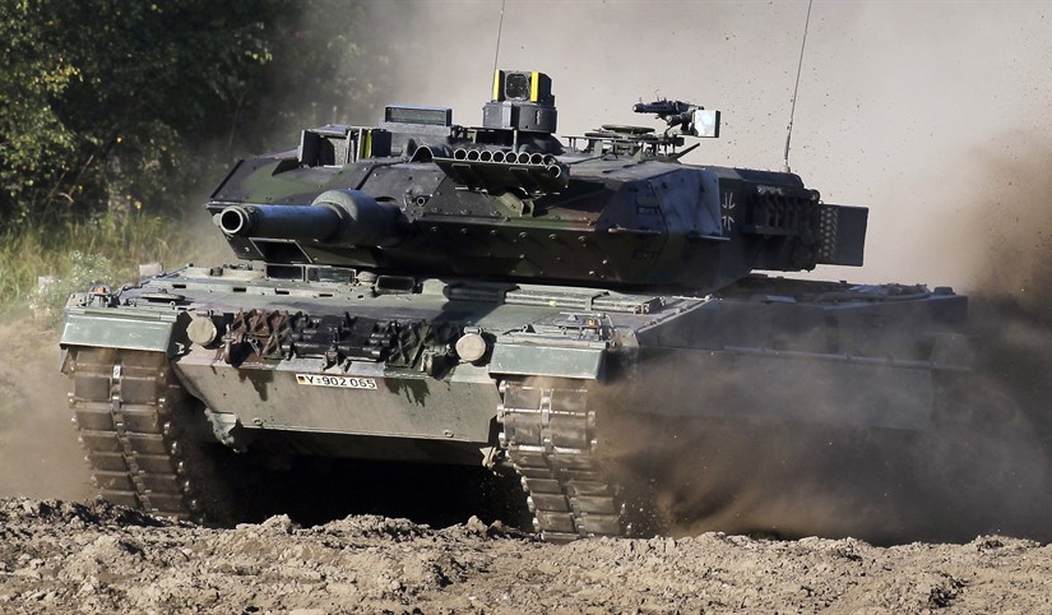Europe's defense posture, into the fourth decade since the end of the cold war, is a hollow shell of what it was at the end of the 1980s.
The German Army today is about 1/6 the size it was when Ronald Reagan left office, even though the population of today's unified Germany is almost a third larger than West Germay during the Cold War.
The British Royal Navy had about two dozen nuclear attack and missile subs back then. Today, there are, count 'em, five attack subs and four ageing ballistic missile boats. Once the most powerful navy in the history of the world, today's Royal Navy has more admirals than combat ships:
The problem, of course, is that when Francis Fukuyama said the end of the Cold War also marked "the end of history", the Europeans took it very seriously. They switched the mission of NATO's military from "defending Europe" from an attack that, in those heady days when we were cashing "peace dividends" all over the world, seemed like it'd receded to the pages of Tom Clancy novels, to "keeping the peace", and structured their forces to fit that mission.
Well, officially.
It didn't work all that well in practice, even then: during the Balkan conflict in the 1990s, Dutch peacekeepers collapsed in the face of a Serbian attack at Srebrenica, bunkering down as Serbs ethnically cleansed the area around them of Bosnian Muslims (a national trauma from which the Dutch are still recovering).
The German Army, also focused on peacekeeping, has problems of its own.
But the invasion of Ukraine three years ago changed all that, and threw Europe into an urgent frenzy of rearmament...
...well, no. Not really. Other than the Poles and the Baltic Republics - which, significantly, have experience with Soviet/Russian rule in living memory, and the attitude to show for it - and the Finns, whose history with Russia also precluded much in the way of decline, the rebuilding of NATO's military to focus on its very reason to exist, defending Europe, is going a little slow.
Richard "Wretchard" Fermandez:
Basically Europe needs 300K more troops, a modernized nuclear deterrent, an expanded defense industrial base and a unified command for its 28 national armies to credibly face Russia. A symbolic "reassurance force" would be senseless.
— wretchardthecat (@wretchardthecat) March 28, 2025
The whole notion of "symbolic reassurance" is dependent on there being a "big stick", militarily speaking, to back up the symbolism. And from 1948 through about 1992, that Big Stick was credible European militaries (especially Germany and the UK), backed by the might of a half million American troops in Europe, a whole lot more ready to go help out in a pinch, and the biggest stick of all, a whole lot of planet-frying American nuclear whoop-tush.
So when Europe's share of that "big stick" is a soggy noodle, and the US is showing less interest in paying for the defense of a union with an economy the same size as ours, what does that leave us with?
These numbers means Europe must spend 3-4% of GDP as they build up to required strength. There are no smoke and mirrors solutions but Macron and Starmer can't bring themselves to face the Green-Left who want to import the Third World and go Zero Carbon.
— wretchardthecat (@wretchardthecat) March 28, 2025
That's the need. Here's the reality.
And they could very well make the wrong one: turns out that given a choice between guns and butter, a good chunk of the European political class has discovered butter tastes much better at the ballot box. While Germany's leadership has been making bold noises, nothing is certain, and there's some sticker shock involved:
All parties except the left-wing Die Linke and Sahra Wagenknecht Alliance agree that rearmament on an unprecedented scale is needed, but they differ on how to pay for it. The CDU, the far-right Alternative for Germany (AfD), and FDP propose drastic social spending cuts, while the SPD and Greens favor increased borrowing—though they have not ruled out a pro-austerity alliance with the CDU, whose leader, Friedrich Merz, says Germany should “dare to be more capitalist.” Political scientist Christoph Butterwegge fears there will be a “frontal assault on the welfare state” after the election.
The final tweet in Fernandez's thread uses terminology that doesn't quite squeeze under Hot Air's language standards, so I'll paraphrase: like a man with an improbable but anatomically tender part of his anatomy nailed to the floor of a burning house Europe faces a painful choice.








